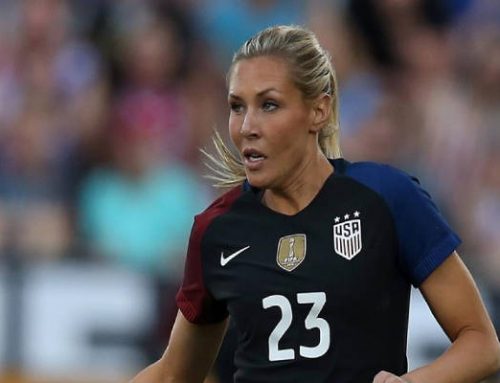Dan Abrahams interviewed alongside Vicky Beaching on Sky News on children’s competitiveness, fun and learning in sport. Below the audio player is the written transcript for those that wish to read rather than listen.
Sky News – Joining me in the studio to discuss this is sports psychologist Dan Abrahams and Vicky Beaching, who is a research fellow in ethics at Durham University, very good evening to you both. Dan I kind of got that feeling as a lot of people did that competition was being eased out of a lot of our schools. It was sort of rather friendly and cuddly and cosy these days. Not very competitive but it clearly isn’t.
Dan Abrahams – No I think it’s a complex landscape but its different to the one your describing there. I work a lot at grass roots level and sometimes there’s over competiveness. But let me sight some research that’s been done recently by the FA. They actually ask those who matter, that’s the kids. They canvassed fifty groups of ten year old kids and they asked ‘why do you play this game, why do you play football?’ And they said ‘well for fun and to meet friends and because we just enjoy football’.
Sky News – Boys and girls?
Dan Abrahams – Boys and girls. First and foremost fun must be at the centre of development, followed by learning skills and then you have to bring in that element of competitiveness.
Sky News – So Vicky an element of competitiveness, is that always a good idea or not?
Vicky Beaching – I’m not so sure and I’ve looked into the difference between intrinsic and extrinsic motivation. So intrinsic obviously being doing it for its own end, its own joy, and extrinsic doing it either for a reward or a punishment. And the more you up extrinsic external rewards for children their creativity goes down, there generosity goes down and there empathy goes down. So you kind of create a new generation of leaders who see winning as the one goal and lose out on empathy for their fellow team mates because they just become a means to an end.
Sky News – Hasn’t that always been the case? Haven’t we always been instinctively mankind competitive beasts?
Dan Abrahams – Absolutely and that’s why sport is a great lesson for life. It’s almost cliché to say it isn’t it. But it’s a cliché because it’s true. Sport is a great platform, an arena for teaching people the soft skills that are important in life, and the soft skills are the hard skills. So it’s a fantastic arena in that respect. Look I agree with everything that Vicky is saying. But I do think a soft careful cautious introduction to competitive play is absolutely crucial. What’s important here that we manage the coaching environment. It’s the culture of coaching that mediates how well these children compete and also how much fun they have.
Sky News – Vicky clearly what this report was trying to get at was the fact I assume kids are picking up a lot of bad signals off the television. They are seeing their sporting icons not behaving as nicely as most of us would like kids to behave. Mums and dads trying to teach good lessons and the kids are seeing somebody diving and cheating.
Vicky Beaching – Exactly, and it was interesting in those stats that one third of those kids were saying they would actually cheat without remorse if they won, and I think that is where the ethical moral kind of impotace comes in. And I do agree that we are teaching people skills for life but often competition is quoted as teaching people to get ready for the real world, and I think it’s worth us remembering with every new generation we actually get to redefine what that real world looks like for a generation of adults who today are children. So why not step aside from what I think is quite a non-creative binary of winning and losing and actually get a bit more creative. Let’s teach people how to collaborate. The kind of leaders that we want to be around, even us I’m sure in our own work places, we want to be around people who are team mates, who cheer each other on, who give each other the best opportunities, and we’re not raising people to aspire to that. We are actually saying there’s winners, there’s losers, people are a means to an end.
Sky News – But by approaching it from that point of view can you still breed Olympic Champions, World Cup heroes or whatever else?
Dan Abrahams – Of course you can. I do think it’s a slightly more complex landscape when it comes to sports like tennis, like gymnastics where entry into world class competition comes at a much younger age. But look that’s where governing bodies, the responsibility of governing bodies and responsibility of top level coaches within those governing bodies have to have fantastic communication with parents and with competitors from a young age, to give them an idea of what that landscape looks like as they develop, as they improve.
Sky News – I was going to say Vicky we all went to school and grew up with kids of a vast range of ability, from the kids who went on to be superstars and actually did make it or you’re the last picked because you’re the dorky kid that’s useless at it and presumably that can be pretty detrimental.
Vicky Beaching – I think it can. I was coming over on the way here wondering in the taxi as I was preparing my thoughts if most of the counselling fees that are paid by adults, probably start the sessions by going I was the kid that didn’t get picked for the football team. They are such classic moments in our own childhood that shape us and studies have shown that although winning in competition really does bolster self-esteem some studies have compared it to sugar for your teeth. So they are basically saying competition is like a rush its instantaneous, but it tempery, and actually those who are most bolstered by competition are also most susceptible to losing and that sense of deflation. So your boosting someone and crushing them simultaneously. It’s a bit like sugar, you enjoy the sweets but then you end up with rotten teeth. So my whole take away from it is, this generation growing up, we look at the shows they’re interested in, we look at their media, you know its X Factor, it’s The Voice, it’s about being a superstar. I’m not sure they really need yet more of that reinforced at school. I think collaboration and team work is a much more needed in this generation.
Sky News – Going to have to leave it there I’m afraid. You both got picked tonight. Dan Abrahams, Vicky Beeching, thank you both very much indeed.



